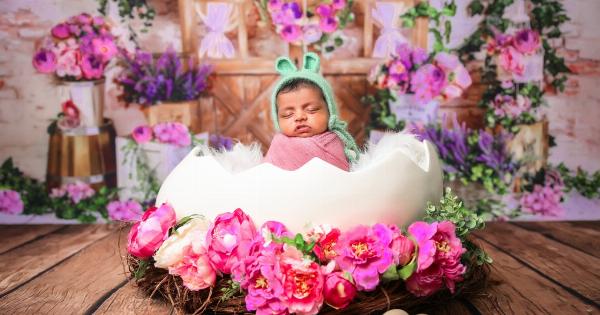In the modern world, women are often faced with the dilemma of deciding when to start a family. While many factors come into play when making this decision, one of the most crucial ones is a woman’s fertility.
The ability to conceive and carry a baby to term is influenced by various factors, including age. This has led to the concept of age-related infertility, where a woman’s chances of getting pregnant decrease as she grows older.
Understanding Fertility
Fertility is a complex process that involves both male and female factors. However, this article will specifically focus on age-related infertility in women.
To comprehend the impact of age on fertility, it is essential to know how the female reproductive system functions.
The Menstrual Cycle and Ovarian Reserve
The menstrual cycle, which occurs roughly every 28 days, is the process through which a woman’s body prepares for pregnancy. The cycle is controlled by the hypothalamus, pituitary gland, and ovaries.
Each month, an egg is released from one of the ovaries, awaiting fertilization.
As women age, the quantity and quality of eggs in their ovaries decrease. This decline in the ovarian reserve directly affects fertility. Women are born with a fixed number of eggs, and as they approach menopause, the reserve diminishes significantly.
This reduction in egg quantity is commonly referred to as diminished ovarian reserve (DOR) and is a major contributor to age-related infertility.
Hormonal Changes
Another factor influencing fertility as women age is hormonal changes. The levels of reproductive hormones, such as estrogen and progesterone, fluctuate throughout a woman’s life.
As menopause approaches, these hormone levels become irregular, causing disruptions in the menstrual cycle and leading to difficulties in conceiving.
The Impact of Age on Fertility
Scientific studies have consistently demonstrated a decrease in fertility rates as women age. The decline becomes more evident once a woman reaches her mid-to-late 30s and accelerates after the age of 35.
Chances of getting pregnant each month drop significantly, and the risk of miscarriage and chromosomal abnormalities in the baby increases.
Age-Related Infertility: Fact or Fiction?
Now, let’s address the question of whether age-related infertility is fact or fiction. The answer is unequivocally fact.
Numerous studies, medical professionals, and fertility specialists concur that age is a significant factor affecting a woman’s reproductive capabilities.
Success Rates of Assisted Reproductive Technologies (ART)
Advancements in assisted reproductive technologies (ART) have undoubtedly provided hope for women facing age-related infertility.
Treatments such as in vitro fertilization (IVF) have allowed many women to conceive and have healthy babies even in their late 30s or early 40s.
However, it is important to note that while ART may improve the chances of pregnancy, they do not reverse the natural decline in fertility associated with aging. The success rates of ART are generally lower in older women compared to younger ones.
Educating Women about Fertility
Giving women the right information about their fertility and the impact of age is crucial. Many women underestimate the difficulties that may arise when trying to conceive later in life.
By educating women about the realities of age-related infertility, they can make informed decisions about family planning and take appropriate steps if they wish to pursue pregnancy at an older age.
Fertility Preservation
For women who wish to delay starting a family, fertility preservation techniques offer a glimmer of hope.
Freezing eggs or embryos at a younger age allows women to preserve their fertility potential and potentially increase their chances of getting pregnant later in life.
Conclusion
Age-related infertility is not a myth but a scientific reality that women should be aware of. As women delay childbirth for various reasons, it is important to understand the impact of age on fertility.
While assisted reproductive technologies provide hope, it is vital to remember that they cannot fully reverse the natural decline in fertility associated with aging. Educating women about their fertility and promoting awareness of fertility preservation options are crucial steps towards helping women make informed decisions about when to start a family.



























